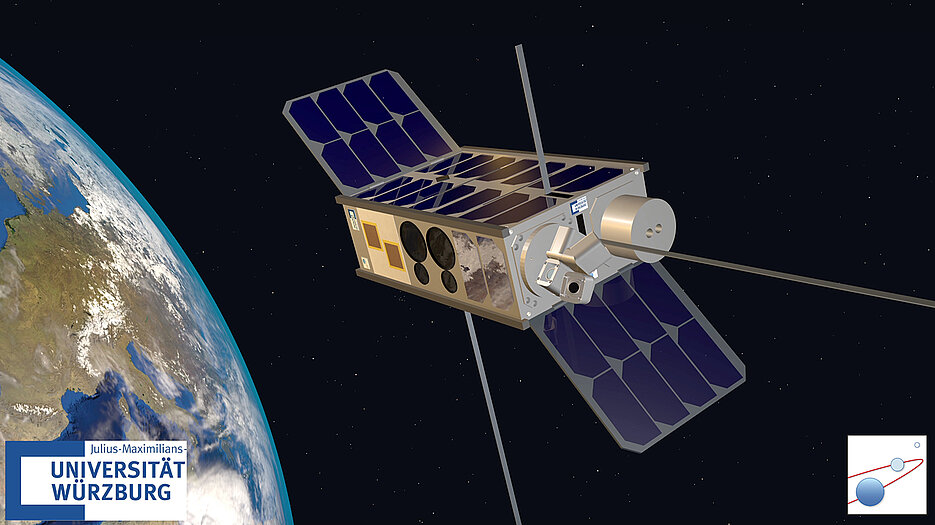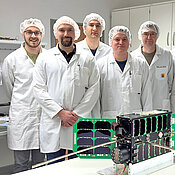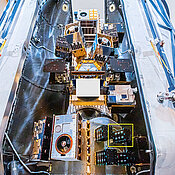Successful Launch into Space
03/05/2024On the night of March 4-5, 2024, the University of Würzburg's SONATE-2 nanosatellite was successfully launched into space. It will test new hardware and software technologies for artificial intelligence.

After more than two years of development, the SONATE-2 nanosatellite from Julius-Maximilians-Universität Würzburg (JMU) cleared a major hurdle on the night of March 5th: On board a SpaceX rocket, it began its journey into orbit from the west coast of the USA punctually at 11.05 p.m. (CET). The satellite was designed and built by a team led by aerospace engineer Professor Hakan Kayal.
SONATE-2 is a so-called 6U+ cubesat model. It is about the size of a shoe box and weighs around twelve kilograms. With SONATE-2, Kayal and his team want to demonstrate and test the training of an AI system in space on board of a small satellite for the first time. With the help of this technology, small interplanetary satellite missions could, for example, autonomously discover interesting objects or phenomena on objects in the solar system, such as asteroids, in the future.
The satellite is controlled by the JMU Würzburg Mission Control Center and the associated ground station network.
The SONATE-2 project is financed by the German Aerospace Center (DLR) with funds from the Federal Ministry of Economics and Climate Protection (BMWK) on the basis of a decision by the German Bundestag (FKZ 50RU2100).
More information can be found on the SONATE-2 website
Contact
Prof. Dr. Hakan Kayal, Chair of Space Technology, Institute of Computer Science, University of Würzburg, T +49 931 31-86649, hakan.kayal@uni-wuerzburg.de







